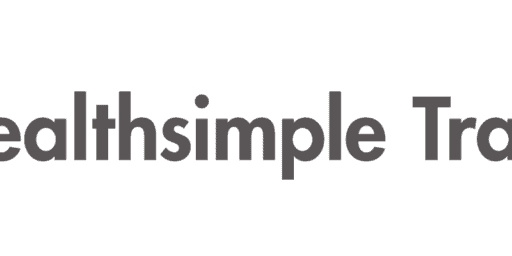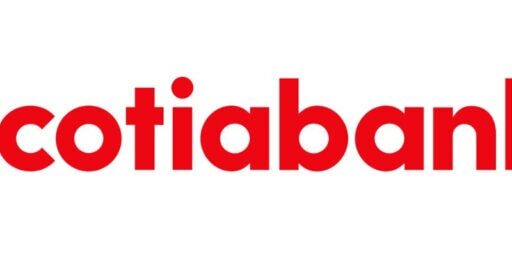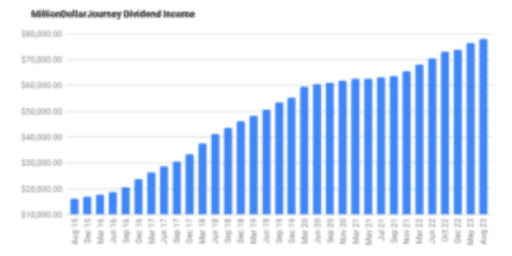Net Worth Update November 2014 – Sean Cooper (+5.21%)
Welcome to the Million Dollar Journey November 2014 Net Worth Update – Team MDJ edition. A select group of readers were selected to be part of Team MDJ which was conceived after the million dollar net worth milestone was achieved in June 2014. Sean Cooper was selected as a team member and will post net worth updates on a regular basis. Here is more about Sean.
Profile:
- Name: Sean Cooper
- Age: 29
- Day Job: Employed with a major global pension consulting firm.
- Family Income: $50,000 (full-time job); $18,600 (rental income before expenses); and, $20,000 (approximate freelance income).
$5,000 (part-time job) - Goals: Mortgage paid off by 31, million dollar net worth by mid thirties.
- Notes: Owns a house, rents out main floor. Most of net worth is in the principal residence. No other debt besides mortgage.
August 1, 2014 marked my mortgage anniversary date, so I’ve started aggressively making lump sum payments on my mortgage; my mortgage is down a whopping 29.84%. In only three months, I’ve made lump sum payments totaling $35,350. Once I maximize my lump sum payments, I’ll start building up my emergency fund.
Similar to most people, my investment portfolio took a beating. With the TSX hitting an 8-month low, my RRSP is down 1.23%. Since I’m investing for the long-term, I’m not too concerned about daily fluctuations in the markets. I view this as a good buying opportunity for investments for my TFSA.
I decided to quit my part-time supermarket job to better focus on my full-time job and budding career as a financial journalist and personal finance expert. I was rated highly in my yearly performance review at work and received my full bonus for this calendar year. I’m considering working towards my Certified Employee Benefits Specialist (CEBS) designation and enrolling in Toastmaster to improve my communication skills. I’m interested in doing motivational speaking as a keynotes speaker.
My old tenants moved out at the end of September 2014, with my new tenants moving in October 1, 2014. Besides missing smoke detectors, my home was luckily in pretty good shape. I did do some minor repairs, including repainting the side door. I structured the lease slightly different this time around – instead of making the utilities inclusive, my tenants are paying a share (60%) of the utilities. I learned from my mistake last time when my previous tenants left my baseboard heater on for two straight moves and doubled my electricity bill.
On to the net worth numbers:
Assets: $623,413 (-0.77%)
- Cash: $3,102 (-57.86%)
- Registered/Retirement Investment Accounts (RRSP): $45,566 (-1.23%)
- Tax Free Savings Accounts (TFSA): $0 (+0.00%)
- Defined Benefit Pension: $24,421 (+0.00%) (commuted value adjusted annually in June when I receive my annual statement)
- Non-Registered Investment Accounts: $324 (+0.58%)
- Principal Residence: $550,000 (+0.00%) (purchase price adjusted for average selling price annually)
Liabilities: $75,131 (-29.84%)
- Principal Residence Mortgage: $75,131 (-29.84%)
Total Net Worth: ~$548,281 (+5.21%)
- Started 2014 with Net Worth: $460,500
- Year to Date Gain/Loss: +19.06%
Some quick notes and explanations to common questions:
The Cash
The cash is held in a no fee chequing account with PC Financial. I use my chequing account for regular bill payments, as well as making lump sum payments on my mortgage.
Savings
My savings are held in a Tax Free Savings Account (TFSA) with Canadian Direct Financial. I mainly use my TFSA as an emergency fund and to save towards the balance owing when I file my personal income tax return at the end of April. Even though I contribute the maximum to my RRSP annually, I still have a large balance owing to the taxman since I receive rental income and income from self-employment (I’m a freelance writer).
You may be wondering why my balance is currently $0. At the beginning of the year I had $15,000 in my TFSA. However, this year was especially costly, as I had to spend $25,000 on repairs and renovations to my house, including a new retaining wall, side walk, front porch, sump pump, and eaves troughs. I plan to rebuild my emergency fund once I’ve maximized the prepayment privileges on my mortgage. If any more costly home repairs creep up, I can always slow down on prepaying my mortgage.
Where Do the Savings Come From?
I’m very frugal with my money. People are often amazed at how low my monthly expenses are. For most families the most costly household expenses are housing (mortgage or rent), transportation, and food. I’ve been able to minimize all three through lifestyle choices.
As a single first-time home buyer in Toronto, I decided to take on the added responsibility of being a landlord. Instead of living upstairs, I decided to live in the basement and rent the upstairs to a family. I got this brilliant idea from the host of HGTV’s Income Property, Scott McGillivray, who lived in his basement for nine years while renting out the upstairs unit to save money.
Instead of driving a car, I cycle the majority of the year and take public transit during wintertime. In my recent article, readers were amazed I only spend $100 per month on groceries. How have I managed to spend so little? I shop at discount supermarkets, price match, avoid fast food, and buy sale items in bulk. I’m also vegetarian, which helps me avoid paying the outrageous prices for meat.
How Have I Been Able to Pay Down My Mortgage So Quickly?
Despite an annual salary of only $50,000, I’ve been able to pay down over half of my mortgage in only two years through hard work and determination. Besides being a landlord, I’m a financial journalist. I also work part-time at a grocery store once a week. Through secondary sources of income, I’ve been able to maximize the prepayment privileges on my mortgage and maximize my RRSP contributions each year.
Real Estate
My real estate holdings consist of my primary residence. I purchased my house in August 2012 for $425,000 with a mortgage of $255,000. As I live in Toronto, one of Canada’s most expensive housing markets, I’ve based the value of my principal residence on comparable properties that have recently sold in my neighbourhood.
Pension
The pension amount listed above is the value of my defined benefit pension plan. I take the commuted value from my annual statement, which I receive by June 30th each year. I am fortunate to receive the commuted value on my annual statement, as most employers don’t provide it. This makes retirement planning a lot easier.
I've Completed My Million Dollar Journey. Let Me Guide You Through Yours!
Sign up below to get a copy of our free eBook: Can I Retire Yet?











I just wanted to clarify a few points.
– No, I did not graduate with 50K of student debt. That was the TOTAL COST of my post-secondary education in college and university (tuition, books, school supplies, etc). Quite honestly, this was the first TV interview. I told the TV producer that I graduated-debt free, but he said it would be “more compelling” if I said I had $50K of debt. I regretted saying this ever since, but I wanted to be on the show. I have been truthful about my finances ever since.
-I never saved a down payment of $170K when I was a full-time student. That was 3 years after I graduated from university and had a full-time job.
– I tend to be conservative with my estimate of freelance income. Although I said I only earned $2000-$3000 a month in freelance income in the Financial Post article, it’s more like $5,000-$6,000 a month (before taxes). I also have rental income. Last year between my freelance work, rental income and full-time job, I easily earned over $110K gross. With this extra money I’m able to contribute the max to my RRSP and max out the prepayment privileges on my mortgage.
One last point….it’s pretty clear that if the majority if his claims are true, he’s got to be making $150k+ gross from all sources, which makes him a high earner.
He ought to consider changing his message/image FROM “how to pinch pennys” which is a high effort/low impact way to increase wealth TO “how to make more money” OR “how to become a high-income earner” which are really driving his progress.
Anyone who follows his penny pinching tips with the hopes of emulating him is bound to be disappointed.
@ James
Up until this point, I was willing to give the guy the benefit of the doubt. But it’s pretty clear from your sources there’s something fishy going on.
I also find it particularly interesting the way he uses accounting discretion to make his progress appear better than reality. For example, he rents out the majority of the space in his house, but includes unrealized capital gains on his house in his net worth without an associated tax liability.
Lesson Learned: if you’re going to lie or bend the truth on the internet, at least make sure your message is consistent across time and space!
@James: it’s the world of finance, lies and fraud are all part of the game. :) Thanks for the expose!
How I Graduated from University With $50,000 of Debt (2012)
https://www.youtube.com/watch?v=4tygGTC-FQw
Sounds like a case of wanting to be overly adored.
As other have noticed, the math just doesn’t work. Plus:
a) In this article he claimed to graduate debt free: http://www.housingblock.com/blog/mortgage-free-31-journey-student-first-time-homeowner/
b) In this video, he says he graduated with 50k in student debt: https://www.youtube.com/watch?v=4tygGTC-FQw
c) In this article, he claimed to earn up to 25k per year from working during university: http://business.financialpost.com/2014/06/07/mortgage-free-in-canada/
So he either graduated with 50k in debt or with no debt at all, never made more than 25k per year during school, yet somehow had a down payment of 170k saved up, and somehow decreased his mortgage by 180k in 26 months.
What a bunch of BS.
@Kelly
This has nothing to do with “hating”. Aside from people with big egos, there are probably two types of people who feel the need to publish their net worth on the internet:
1) They want to generate a following and sell lots of books/advice teaching others how to do what they did. Look at how many so-called “gurus” have been proven to be frauds. Accepting anything less than full transparency from a guru or wannabe guru with respect to their claims is dumb, especially if you hope to learn anything from them.
2) They genuinely want to help others and believe that “opening the books” will do inspire others to do what they did. This is noble, however, in Sean’s case his lack of transparency and connecting the dots are more likely to leave disappointed, since they will never be able emulate his apparently awesome achievements without knowing specifically how he did it.
I don’t see how the numbers add up either.
Hi Sean,
Wow, your financial feats are amazing. I admire your hard work and determination as well as the importance you have put on sacrificing today for a better tomorrow.
I am 26 and have a similar salary and job in Vancouver. What did you do to save your $170,000 down payment, so quickly after graduating? Currently, through living at home and keeping my expenses to a minimum I have been able to save $115,000 (graduated with a positive NW of $20k and saved $25k-$30k each year once working). I hope to purchase a home on my own within the next 2 years.
What advice do you have for all the haters? I find a lot of my coworkers and peers do not understand or support my lifestyle choices.
Agree with above Timmy/David. The post loses credibility without a response from Sean regarding the source of the income discrepency is it a bonus? ridiculously profitable freelance work? inhertitance? medical trials? sold a kidney?